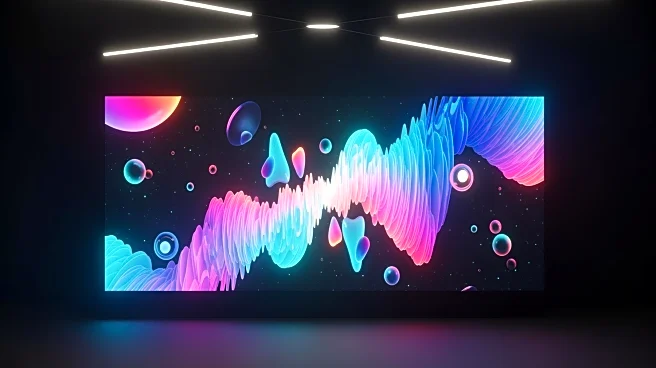What's Happening?
Meta has announced the launch of 'Vibes', a short-form video feed featuring AI-generated content, in Europe through its Meta AI app. This development follows the introduction of the feed in the U.S. six
weeks prior. Vibes allows users to create and share AI-generated videos, with the feed becoming more personalized over time. Users can generate videos using prompts, remix existing content, and add visuals or music to suit their tastes. Despite Meta's previous emphasis on authentic storytelling, the company is now promoting AI-generated content, which has raised concerns about the quality of content on social media platforms. The term 'AI slop' has emerged to describe low-quality AI content, and platforms like YouTube are taking steps to address this issue.
Why It's Important?
The launch of Vibes highlights the growing influence of AI in content creation and its potential impact on social media platforms. As AI-generated content becomes more prevalent, concerns about content quality and originality are rising. This shift could affect user engagement and the overall credibility of social media platforms. Companies like Meta are embracing AI technology, while others, such as YouTube, are attempting to mitigate the spread of low-quality content. The balance between innovation and maintaining content standards is crucial for the future of social media, impacting both creators and consumers.
What's Next?
Meta's introduction of Vibes may prompt other social media platforms to reevaluate their strategies regarding AI-generated content. As the technology evolves, platforms will need to address the challenges of maintaining content quality and authenticity. Stakeholders, including content creators and advertisers, may need to adapt to these changes, potentially influencing marketing strategies and user engagement. The response from users and competitors will likely shape the direction of AI integration in social media.
Beyond the Headlines
The rise of AI-generated content raises ethical questions about creativity and originality in digital media. As AI tools become more sophisticated, the distinction between human and machine-generated content may blur, challenging traditional notions of authorship and intellectual property. This development could lead to new legal frameworks and cultural shifts in how content is produced and consumed.








